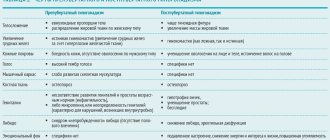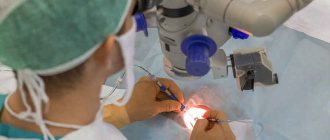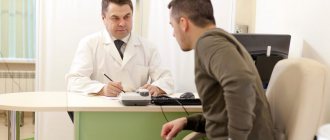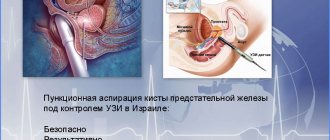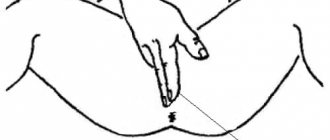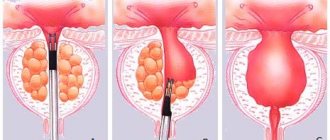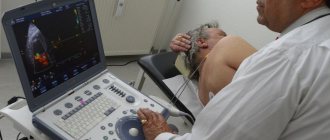Lecithin grains are a natural product of prostate metabolism. Their presence in the ejaculate is normal, and a reduced amount indicates the presence of pathology or improperly collected sperm. The diagnosis of the disease is established on the basis of a complex of studies. Treatment includes medications, physiotherapeutic techniques, herbal medicine and surgery. The choice of one method or another depends on the overall picture of the disease and the severity of the disease.
Norm of lecithin grains
A large amount of lecithin in prostatic fluid indicates its proper and healthy functioning.
The greater the number of plaques, the better the male reproductive system works. IMPORTANT. In some laboratories, the norm is considered to be the number of lecithin grains of 10 million pieces in one milliliter of prostatic secretion
Such a large quantity guarantees the patient’s male health.
Most clinics have adopted a “plus” system, in which the examination results are deciphered as follows:
Another important parameter is the presence of leukocytes (white blood cells), erythrocytes (red blood cells) and amyloid cells in the test fluid. The presence of leukocytes indicates an inflammatory process (beginning or ending). The presence of single red blood cells in the spermogram may be a sign of complications of prostatitis or a symptom of the development of a malignant tumor. Amyloid bodies should not be detected in the spermogram - their presence is a symptom of congestion.
Prevention of pathology
You can increase the number of lecithin grains and improve the health of an important gland without resorting to medications, but only before problems with its functioning begin. The main preventive measure is a preventive examination once a year to detect the early stages of prostatitis. Only by curing this disease can you be sure that your sperm count will correspond to healthy standards.
It is also important to eat right, lead an active lifestyle, give up bad habits, exercise, and strengthen your immune system. You should maintain clean sex life and personal hygiene rules, and take regular breaks if your work involves standing or sitting in one place for a long time.
Analysis methodology
To obtain prostate juice, the physician first massages the patient's prostate through the rectum. This releases the required amount of juice. It is placed on a glass slide and then examined under a microscope.
The juice obtained for analysis is diluted in a certain volume with distilled water with the addition of an indicator: most often, methylene blue.
The resulting mixture is shaken well and placed in Goryaev’s chamber.
The patient is referred for this test if he complains of frequent and difficult urination, during which he experiences pain or burning, nagging pain in the perineal and groin area, and during a rectal digital examination, the doctor detects signs of inflammation of the prostate.
To obtain prostatic juice, massage the prostate and collect the secretion in a sterile test tube or directly onto a glass slide. The secretion may not be released if there is not enough of it, and it settles on the walls of the urethra. In this case, the patient must urinate, the resulting urine is centrifuged and thus samples of prostatic juice are obtained.
Lecithin grains are determined in prostate secretions using a special technique. A few drops of distilled water and a dye called methylene blue are added to the resulting material. After thoroughly mixing, the sample is placed in the Goryaev chamber - a special device designed for counting cells - and the number of grains is counted using a special formula.
Despite all modern diagnostic technologies, the only way to obtain prostate juice is still a digital massage performed by a doctor transrectally. Before the procedure, the patient must empty his bladder. After which the specialist will massage according to the instructions, stimulating the prostate gland to secrete its secretions.
To objectively assess the number of lecithin grains in the prostate secretion, you will need from 0.5 to 2 ml of juice, which is placed under a microscope for the purpose of preliminary calculation. If there are obviously a lot of crystals, and they densely cover the entire surface of the secretory fluid, further study of the causes of the probable pathology will require other laboratory approaches.
Otherwise, a small amount of secretion is mixed with distilled water and methylene. After which it is placed in a special chamber for a more detailed calculation of the number of lecithin grains.
Preparatory measures before collecting biomaterial:
- exclude sexual activity for a week;
- limit the consumption of alcohol and tobacco products;
- refuse to visit baths and saunas;
- Before the procedure, you should cleanse the intestines with an enema.
Before collecting the biomaterial, the specialist massages the prostate area through the rectum.
The released secretion is subjected to detailed analysis under a microscope.
A portion of the biomaterial is diluted with a drop of distilled water and a dye, methylene blue, is added. The resulting mixture is placed in a Goryaev chamber - a device for cell analysis.
In order for the doctor to properly stimulate the prostate, you should lie on your side with your knees bent. This position is the most optimal for massage. Staying tense can slow down the process of collecting secret juice, so you need to be in a relaxed state as much as possible.
The amount of lecithin grains in the secretion of the prostate gland can be determined by analyzing it under a microscope. Under normal conditions, the entire surface will be covered with them. If there are deviations from the norm, the quantity will decrease.
To more accurately determine the course of the inflammatory process, the gland juice is mixed with water, completely purified from impurities. After this, the entire mixture is diluted with methylene, which is an antiseptic. Next, everything is placed in a special Goryaev chamber, where the number of lipoid grains is calculated.
The attending physician can prescribe a patient to check prostate secretions only in cases where there is a frequent urge to go to the toilet, difficulty urinating, weakening of the stream and pain in the groin and perineum. But such a study cannot be carried out when a person has a cold, has rectal fissures from hemorrhoids, or has tuberculosis. Also, collection of secretions should not be carried out during acute manifestations of inflammation, otherwise the lecithin grains in the prostate secretion may disappear altogether.
Diagnostic features
Analysis of prostatic juice is carried out in the laboratory immediately after collecting seminal fluid. In order for its results to be correct, it is important to stimulate the gland well and obtain a significant portion of juice, which will be sufficient for diagnostics. Stimulation of the gland is carried out using massage through the anus.
IMPORTANT. Massage of the organ should be entrusted to a doctor. He will perform the manipulations correctly, and there will be virtually no discomfort during the procedure.
During the massage, a man is recommended to lie on his side and press his knees to his stomach. You need to try to relax as much as possible, because... Excessive tension will affect the amount of fluid produced. It is released through the urethra during the process of ejaculation, which occurs after a massage. Further diagnostics are carried out in two ways:
- microscopic examination. In this case, the presence of plaques is determined: in a healthy patient, their number in the visible zone is almost impossible to count;
- use of the Goryachev camera. In this case, the juice is mixed with distilled water and special reagents, placed in a special chamber, and then the number of grains is counted.
Lecithin grains in the spermogram do not have an exact quantitative indicator. In the research results, they are designated by pluses from one to three, which means the norm of presence.
Interpretation
As noted above, a microscopic examination of the male organ should reveal a lot of lecithin grains in the prostate secretion. They should thickly cover his secretory fluid. The number of elements is considered an indirect indicator of prostate health. By examining the functional state of the gland and the secretion it produces, the doctor determines the presence or, conversely, absence of various diseases.
If inflammatory processes are detected, the necessary course of treatment is prescribed. Leukocytes serve as markers of the inflammatory process. Their absence indicates that the organ is functioning normally and its condition is not in danger.
What diseases can be identified
Lecithin grains can be very useful during the diagnosis of prostate diseases. After analyzing the secretory juice, the doctor can confidently speak about the presence or absence of an inflammatory process in the genitourinary system. This will also help him correctly adjust the treatment therapy to suppress the painful condition and make the patient feel better. If the patient refuses the therapeutic course, he risks problems in the form of decreased potency and complete infertility.
Studying the amount of lipoids makes it possible to prevent erectile dysfunction. This analysis also plays a big role in identifying inflammatory processes, which are diagnosed in more than half of the male population of different ages.
If after some time an analysis of the content of lecithin grains shows their increase, it means that the disease is receding. Otherwise, the doctor will have to offer the patient more effective therapy to suppress inflammation of the prostate tissue, which causes the entire genitourinary system to suffer and lipid levels to rapidly decrease.
Until August 10, the Institute of Urology together with the Ministry of Health is conducting the program “Russia without prostatitis ”. Within which the drug Predstanol is available at a discounted price of 99 rubles. , to all residents of the city and region!
Norm of lecithin grains in prostate juice
Each man has individual characteristics of his body. Accordingly, there is no single norm of lecithin grains or urological standard. When issuing results, doctors indicate reference values or ranges with a minimum and maximum threshold indicating that the patient is absolutely healthy.
USEFUL INFORMATION: What is ICSI
It is optimal for the ratio to be 10 million grains per 1 ml. secret. Small deviations up and down do not pose a threat and are regarded as normal. Danger arises if a long-term tendency to decrease in volume is diagnosed, as well as lecithin grains in the prostate secretion in small quantities.
Grains in small quantities
As a rule, several reasons prompt you to donate prostate secretions for analysis:
- pain during urination and sexual intercourse;
- a couple's inability to conceive a child.
If the sample reveals a small amount of grains, this indicates serious pathological changes associated with gland dysfunction. Additional tests will be required to clarify the diagnosis. But in most cases, a small amount of lecithin grains indicates the presence of an acute inflammatory process.
Such violations can cause two more reasons:
- congestion in the pelvic area and the prostate itself;
- Incorrect secretion collection - this is likely if all indicators are normal except for lecithin grains.
The exact cause and the need for repeated collection of gland juice will be determined by the attending physician. Due to the complexity of the analysis, the collection of secretions should be carried out by a qualified specialist with extensive experience.
The absence of lecithin grains in prostate juice indicates that the pathology has become chronic. Immediate therapeutic assistance is required. Advanced prostatitis can develop into cancer.
Moderate amount of grains
Indicators indicate the presence of tumor processes. The reason for the decline is the changed hormonal background, as well as stagnation caused by tissue proliferation. Lecithin grains in prostate juice in moderate quantities indicate hyperplasia of unknown origin. Additional examination will be required to clarify the diagnosis.
Differential examination includes mandatory repeated sampling of secretions, rectal palpation, ultrasound, MRI and CT. If cancer is suspected, a biopsy and biochemical blood test for PSA are performed.
Grains in large quantities
This is the norm. The better this indicator, the higher the probability of fertilizing a woman. Ideally, in a healthy healthy man, lecithin grains are found in large quantities in the secretion of the prostate gland.
An additional indicator indicating the condition of the genitourinary system is the presence of leukocytes in the juice of the prostate gland. Normally, there should be no immune blood cells at all. If a large number of lecithin grains are found in the secretion of the prostate gland, but leukocytes are present in high concentration, this is direct evidence of recently begun inflammation.
How to increase lecithin grains in prostate juice
Patients in whom lipoids are found in small quantities need to increase lecithin grains. For this purpose, the following activities are carried out:
- Drug therapy - the basis of the deviation is inflammation or hyperplasia. Depending on the violations, antibacterial and antitumor treatment is prescribed. NSAIDs and prophylactic drugs are prescribed.
- Physiotherapy helps restore the functioning of the prostate gland and eliminate congestion. During sessions, prostate tissue is stimulated, causing it to produce lecithin in significant quantities.
After formal treatment, it is possible that few grains will remain secret. This is due to the consequences of long-term inflammation, especially if it has become chronic. The prostate gland must be given time to recover. At this stage, exercise therapy will help, in particular Kegel gymnastics, Streltsova.
Products rich in zinc and selenium are introduced into the diet. Urologists recommend basing daily nutrition on the Mediterranean and Japanese diet, as well as treatment table No. 5. The first improvements will become obvious 1-2 months after treatment.
A decrease in the volume of lecithin grains indicates serious pathological disorders of the genitourinary system. The patient requires urgent qualified medical care.
Prostatic fluid studies
Prostate cells produce a special secretion, which enters the male sperm through the excretory ducts. The release of prostatic fluid occurs during sexual arousal, as well as during stimulation of the prostate, which occurs spontaneously during defecation and urination or during a diagnostic rectal examination procedure.
The composition of the secretion of the prostate gland includes water, making up more than 90% of the total volume, organic and mineral substances. A separate category of components that make up the prostate secretion is represented by cellular and non-cellular structures. The first category includes the remains of desquamated epithelium, single erythrocytes and leukocytes, macrophages and giant cells.
If problems arise with the prostate, then the help of a urologist is necessary. After conducting comprehensive examinations and studying the analysis of secretions, it is possible to reveal the overall picture of the performance of the male glandular organ.
Analysis of the prostate allows you to reveal data on the degree of damage to the gland, reserve capabilities, inflammatory processes, and pathogenic microflora. In case of chronic prostatitis, prostate secretions are taken for analysis every 6 months.
This is necessary to monitor the effectiveness of prescribed therapeutic manipulations and change treatment measures, if necessary.
Prostatic juice is part of the ejaculate. A third of the volume of seminal fluid is prostate juice. Prostate juice is necessary for the movement and activity of sperm.
A man is unable to conceive a child without normal fertilizing abilities. Conception occurs only when the normal composition of the secretion is present.
We suggest you read: How to cure phimosis yourself at home. How to cure phimosis without surgery at home.
If a man has an inflammatory process, then the process of conception cannot be normal.
What the study shows
- the composition of the secretion consists of 96% liquid;
- potassium salt;
- sodium salt;
- citrates;
- bicarbonate;
- phosphates;
- protein enzymes;
- leukocytes;
- lecithin grains;
- lipoid fragments;
- amyloid bodies are also contained in the prostate secretion being examined.
The amount of cholesterol contained in lecithin grains indicates the functionality of prostatic juice, so special attention is paid to these parameters, especially when diagnosing infertility.
Prostatic juice should contain citric acid; it is used to determine the acidity of biological material with ions and zinc. The analysis of prostate secretion is carried out using 2 ml of material. Testing is carried out in a laboratory using a microscope.
When prostatic juice is deciphered, specialists can detect pathological processes associated with the urinary and reproductive spheres of the male body at an early stage of the development of the disease, before the onset of disturbing symptoms.
Who is this test prescribed for?
- Male infertility - there are several varieties of this disease, which are associated with insufficient sperm count, activity and shape of sperm. Sperm motility depends on the quality of the composition of prostatic juice. The disturbed composition of the fluid provokes a lack of movement in the desired direction (sperm move chaotically, without reaching their destination).
- Pathologies of the glandular organ - inflammatory processes, prostatitis, oncological process, infection in the genitourinary system and more.
- During treatment procedures, an analysis of prostate secretions is also taken. Analysis of prostate secretions should be prescribed to monitor the results of treatment therapy.
The secretory fluid is examined under a microscope to clarify the above diagnoses.
If an infection is suspected, a bacterial culture is performed.
Painful urine flow
- pain syndrome with stinging during the outflow of urine - with inflammation of the urinary tract, the prostate often becomes inflamed;
- pain in the groin and perineum area;
- increased urination, especially at night;
- frequent urge with a small volume of urine outflow;
- reduced potency;
- the presence of discharge from the urethral canal;
- the occurrence of frequent infections of the genitourinary tract with pathogenic flora;
- infertility.
When prostate juice analysis is not performed:
- anal canal fissures, due to pain;
- high body temperature;
- acute inflammatory process;
- acute hemorrhoids;
- prostate tuberculosis.
If there are restrictions, semen culture, instrumental examination and other examination methods are used to collect prostatic fluid.
To submit informational material, the patient must be prepared. To do this, you must follow some of the doctor's recommendations.
- 10-12 hours before submitting the material for testing, a man should not eat.
- The next day a cleansing enema is performed.
- Before collecting secretory fluid, the bladder must be emptied.
- 3-5 days before donating secretory juice, sexual activity is prohibited.
- Baths, saunas and drinking alcoholic beverages are not allowed for a week before the test is collected.
Sometimes men need psychological support or the use of sedative medications, since not everyone calmly tolerates massaging the prostate gland, which is performed to collect prostatic secretions.
Prostatic juice is examined for several components:
- Detection of crystallization - the secretory composition contains a large amount of sodium chloride. During crystallization, salts take different forms, these forms depend on the nature of the liquid. It is considered normal when the pattern is similar to a fern leaf, complex and orderly. The more deviations, the more pronounced the chaotic arrangement of the crystals.
- Microscopic analysis of the collected liquid volume, color, acidity, density.
- Assessment of cell structure (erythrocytes, leukocytes).
- Studying the juice for existing macrophages.
- Assessment for existing epithelial cells and others.
- Bacteriological assessment - determining the presence of microbes that could provoke a pathological process.
- Detection of the epithelial component.
If the prostate gland is healthy, then epithelial cells are present in very limited quantities. With an increased number of epithelial cells along with leukocytes, they warn of the occurrence of an inflammatory process that requires immediate treatment. What is found in the analysis - Leukocytes.
The norm in a healthy man is the detection of a dozen leukocytes. If the detected amount is higher, prostatitis is diagnosed. Sometimes leukocytes penetrate into the secretory secretion through the urethra. The leukocytes in the material are counted using a counting chamber. It is considered normal when three hundred leukocytes are detected per 1 microlit of material. - Red blood cells should not be present in the body of a healthy man when examining prostatic juice, or can be detected in single quantities.
When a man suffers from prostatitis or an oncological process is detected, red blood cells are present in the secretion. - Lecithin grains. When the prostate secretion has a lot of lecithin grains, the seminal fluid is whitish in color, which indicates the absence of problems. A small number of lecithin grains indicates the occurrence of prostatitis.
- Macrophages.
The detection of these components in large numbers warns of an inflammatory process or congestion. - Amyloid bodies.
These are clots in the prostatic fluid, oval in shape. In a healthy male body, they are not detected. If they are present, congestion in the prostate gland, an inflammatory process or an adenoma is diagnosed. In tests of elderly men, amyloid bodies are often detected. - Cells of gigantic size. Fragments are present during stagnation or inflammation.
- Pathogenic flora.
Found during inflammation or infection. When they are found, bacterial culture is carried out to establish the variety in order to prescribe effective therapy. - Böttcher crystallization. The appearance of these crystals warns of the drying out of prostatic juice in the gland.
- Atypical cells.
Their presence indicates the development of an adenoma or an oncological process; their quantity allows us to determine the stage of the disease and control its development. - Detection of mucus indicates the presence of inflammation.
To diagnose a man, other tests are also prescribed. Since the presence of a pathological process can be seen in urine, blood, ultrasound and other studies.
Decoding the secretion analysis allows you to more accurately determine the health status of the male urinary and reproductive system and prescribe correct, effective treatment.
Lipoid bodies
There is ongoing debate about the role of lecithin grains in sperm. Doctors were never able to come to a consensus. Some believe that their effect on male reproductive cells is destructive, others believe that without their presence the chances of egg fertilization are significantly reduced. Significant funds were not allocated to study this problem, and the efforts of enthusiasts were not enough
Lipoid bodies in a spermogram normally completely cover the entire field of view, so they immediately attract attention
The negative effect of lecithin is compensated and balanced by other components of sperm. Residual bodies should not normally be present in the spermogram. They are formed during the formation of sperm or during the destruction of defective sperm. The presence of these elements in sperm is evidence that sperm maturation is not proceeding as expected.
A large number of these elements indicates an inflammatory process in the testicles and appendages. Lipoid cells in small quantities may be a sign that an inflammatory process is brewing in the prostate. The complete absence of lipoid bodies may indicate the presence of a neoplasm in the prostate. The same signs appear when the ducts are blocked.
Amyloid bodies should not be detected normally in a spermogram, unlike lipoid bodies. If they are present there, then there is an inflammatory process in the prostate gland. Amyloid bodies are formed as a result of the breakdown of epithelium in glandular vesicles, and are found in men over 50 years of age.
If you sniff semen, you can feel its sour smell. Spermine gives semen this smell. This substance is included in sperm for the sole purpose of maintaining its alkaline reaction. Spermine and substances similar to it, which are part of sperm, stabilize sperm DNA. They are necessary for sperm to maintain their vitality. They also act as protectors of prostate cells from the adverse effects of lecithin.
USEFUL INFORMATION: HSG: hysterosalpingography, and MSG: metrosalpingography
The prostate gland also synthesizes citric acid. It is definitely present in sperm. Acid is necessary for the normal synthesis of certain enzymes. These enzymes, in turn, make the sperm more viscous and the sperm more motile. A decrease in the content of these enzymes and a decrease or absence of lecithin grains is an indicator of decreased prostate function. These two indicators allow us to indirectly judge the condition of the prostate. If you conduct research regularly, you can identify prostate diseases in the initial stages.
Taking the test allows you to get an idea of the health of the prostate gland. In addition, the analysis determines whether a man is infertile or not. When visiting a doctor, this test is prescribed first. If there is a deviation from the norm, the analysis should be taken regularly.
Characteristics of basic concepts
Lecithin grains - what are they? These are round-shaped and white plaques present in the prostate juice. They are formed non-cellularly, and it is their presence in sperm (its basis is prostatic secretion) that gives it a white, creamy tint. Because they influence conception; a man’s reproductive abilities depend on their quantity.
IMPORTANT. Another name for lecithin grain is lipoid.
If the number of lipid grains in the sperm is reduced, the guy's ability to become a father is insignificant, and if they are absent, the man is considered sterile. Many factors lead to such infertility, but the main one is benign formations of the prostate gland. Tumors affect the functioning of this organ; it produces less secretion. Lack of juice leads to thickening of the sperm, as a result of which the motor ability of sperm is significantly reduced. And the sedentary living creatures, glued together, are simply not able to overcome the difficult path through the female organs in order to fertilize the egg.
The secretion of the prostate has a very specific aroma, which produces spermine, the same substance is responsible for the proper functioning of sperm. Another component of prostatic juice is phosphatase. Its content helps to liquefy proteins that also make up sperm, which, in turn, enhances the activity of sperm and helps them overcome the alkaline environment of a woman’s vagina.
Analysis of prostate juice helps to identify problems in the sexual and reproductive health of a representative of the stronger sex, but only if it is collected correctly.
Collection and analysis of prostate secretions
It is important to know in advance how biological fluid is collected for diagnostic procedures. Prostate secretion is released during direct impact on the prostate gland - massage
The patient lies on the couch on his side and presses his knees to his stomach or takes another position agreed with the doctor. It is important to completely relax all muscles to get the maximum effect from the procedure.
Diagnosis of the secretion is carried out in the laboratory under a powerful microscope. In normal condition, all the liquid will be in the grains. If pathology is present, their number will systematically decrease, becoming less and less. However, no one counts the exact number of lipoid bodies in the laboratory; they simply indicate in the analysis: many, scanty, moderate, absent.
The value of the number of lipoid bodies:
- a lot - healthy prostate;
- moderate - the need for clarifying diagnostics;
- scant (little) - development of pathology.
If microbiological analysis shows the absence of lipoid bodies in the fluid, it is likely that a portion of urine was taken during the collection, and not prostate secretion.
If the secretion is released from the urethra during massage with great difficulty, a targeted massage course should be carried out to free the ducts from stagnation.
In addition to rectal massage, other types of diagnostics are prescribed:
- PSA test;
- Ultrasound;
- bacteriological culture of secretions.
It takes time to determine the concentration of lipoid bodies in the secretion. First, the man’s biological fluid is diluted in a physiological solution, then an indicator is added, and then only placed in a special chamber to determine the density of the bodies.
Decoding the result
- A low concentration of cells indicates the presence of pathology - an inflammatory process in the acute phase or serious disorders in the reproductive system.
- The complete absence of lecithin grains indicates advanced prostatitis, its chronic form. The patient requires immediate treatment.
- A moderate concentration of bodies indicates the onset of tumor development. This is due to the fact that most tumors are hormonal in nature and are formed due to hormonal imbalance and associated blood stagnation due to tissue proliferation.
- A large number of secreted lipoid cells is the most desirable result for any man. This is an indicator of exceptional male health and strength.
However, one should not draw conclusions about infertility if the analysis reveals a small number of lecithin bodies. To check the possibility of conception, it is necessary to collect sperm, not prostate secretions. Although a meager number of corpuscles may indirectly indicate problems with conception.
Leukocytes, erythrocytes and macrophages
If microbiological analysis showed an insufficient number of lecithin bodies and a large number of leukocytes, it means that an inflammatory process is developing in the reproductive system. A detailed diagnosis should be carried out and treatment should begin immediately to restore all functions. There should be no more than 10 leukocytes per 1 ml of secretory fluid.
Also, red blood cells should not be present in the prostate secretion. These blood cells should generally be absent from the prostate fluid. If they are detected, it means that there is a malfunction in the reproductive system. The doctor will prescribe a clarifying diagnosis and adequate treatment.
Few people have heard of microphages. These cells destroy all agents foreign to the body. If the prostate is healthy, then there will not be a single macrophage in its secretion: it has nothing to do there. But if macrophages are detected, it means the organ is sick and needs treatment.
Therapy
Treatment is aimed at increasing the number of lecithin grains in the prostate fluid. To restore the functions of the prostate gland, direct massage is prescribed. A course of antibiotics is prescribed for the massage, which destroy the bacterial infection - the causative agent of bacterial prostatitis. However, antibiotics are not prescribed in all cases, but only in acute or chronic cases of the disease.
Successful relief from prostatitis will be facilitated by quitting tobacco and alcohol.
Herbal decoctions and moderate physical activity are also added to the complex course of treatment. Exercises for training are selected by the doctor based on the physical condition and well-being of the patient.
The therapeutic course consists of:
- therapeutic massage;
- taking antibiotics or other medications;
- physiotherapeutic procedures;
- dietary nutrition;
- quitting smoking/alcohol;
- moderate physical activity.
In other words, the patient must accustom himself to a healthy lifestyle if he wants to increase the number of lipid cells. The duration of the treatment course depends on the patient’s condition, the severity of the pathology and other reasons.
Physiotherapy
Men have an idea about therapeutic massage, as well as about taking medications. Physiotherapy improves blood circulation in the prostate and groin area and eliminates congestion.
Suggested procedures include:
- acupuncture;
- massage;
- physiotherapy.
Acupuncture stimulates acupuncture points, which are conductors of vital energy Qi (according to Chinese healers). The benefits of acupuncture include relieving symptoms of the disease, rejuvenating the body, strengthening the immune status, etc. Acupuncture will help to establish the production of lipid cells and increase their number. However, acupuncture is contraindicated for tumors, so the practice of the method must first be agreed upon with the treating doctor.
Therapeutic exercise (physical therapy)
The attending doctor will select a set of therapeutic exercises. Moderate and targeted physical activity will ensure a rush of blood to the genitals, accelerate lymph flow (the body's excretory system), strengthen the immune system and rejuvenate the body.
Benefits of exercise;
- will help disperse blood through the tissues;
- normalizes blood microcirculation in the organ;
- will restore venous blood flow;
- cleans the outflow channels of prostate secretions;
- strengthens the immune system;
- will tone the smooth muscles around the bladder and prostate.
Moderate daily physical activity helps heal prostatitis and prevent it.
However, the cause of the development of prostate pathology should also be taken into account: bacterial, congestive, age-related. Bacterial prostatitis cannot be cured with exercises alone, but the stagnant form can be easily treated with exercises. There are also contraindications to physical exercise, which also cannot be ignored.
Helpful Tips:
- for prostatitis, it is useful to walk: from five kilometers a day;
- when working sedentarily, get up from the table every half hour and make circular movements with your pelvis and bend your torso;
- try to use the elevator less and go to the upper floors on foot;
- travel less by car, preferring walking;
- in winter, beware of hypothermia of the pelvic organs.
But in addition to physical exercise, it is necessary to add a special diet, without which any treatment will not bring results. Remember that unhealthy foods contribute to the development of pathology and worsen reproductive function.
Diet
A balanced and proper diet can speed up recovery and restore the functionality of the prostate gland. Junk food takes a lot of energy from the body to neutralize toxins and other dangerous components. As a result, the body has no energy left to restore the diseased organ. Therefore, diet in any treatment is a very important point that should not be neglected.
Also, do not confuse a therapeutic diet with malnutrition, which some women engage in to lose excess weight. A therapeutic diet does not involve reducing food portions and calculating calories: it is aimed at limiting or eliminating harmful foods from the diet.
Healthy foods:
- fruits in any form;
- fresh and boiled vegetables;
- dairy products;
- lean fish/meat;
- seafood;
- all types of cereals;
- compote, fruit drink;
- herbal infusion.
Fresh onions, garlic and horseradish root stimulate metabolic processes, reduce inflammation and normalize blood microcirculation. These foods should be consumed daily.
It is also important to monitor the amount of liquid you drink: at least two liters per day. Water dissolves and removes many harmful substances from the body; with a lack of water, stagnation occurs and stones form.
Should be excluded from the diet:
- smoked, salted, canned, spicy;
- fatty and fried foods;
- sweet products and baked goods;
- all types of legumes and mushrooms;
- alcoholic drinks of any strength;
- sweet carbonated drinks and mineral water.
Fatty and canned foods increase inflammatory processes in tissues; these foods should be excluded from the diet first. In addition to avoiding alcoholic beverages of any strength, you should limit your consumption of coffee and strong tea. These drinks contain caffeine, which is harmful for prostatitis. Instead, you can drink compotes and fruit drinks, juices and kefir.
Eliminate from your diet all foods that cause gas formation: it contributes to stagnation in the pelvis.
Smoked and fried foods should be replaced with boiled and steamed ones. You should immediately give up any spices and forget about their existence until complete recovery. Instead of spices, you can use onions and garlic with horseradish.
Healthy menu
Food habits should be changed once and for all, especially for men after fifty years of age.
If you have prostate diseases, foods cannot be fried: they can be boiled, stewed or steamed.
A healthy menu should consist of:
- fruits and berries - they provide the body with vitamins and microelements;
- dairy products - they contain a lot of animal protein and calcium;
- cereal porridges with water/milk - they contain a lot of fiber;
- lean meat - it has a lot of protein;
- seafood - they contain selenium and zinc;
- vegetables - they contain carbohydrates, microelements and vitamins.
The mechanism of exacerbation of the disease is as follows: harmful foods have a detrimental effect on the health of the pelvic organs, a sedentary lifestyle disrupts blood circulation in the pelvis, and alcohol provokes edema. This is a vicious chain of development of a dangerous disease.
What are lecithin grains
The prostate gland is the male sex gland, which secretes a special secretion that is part of sperm. Prostate secretion is a fairly homogeneous substance, where about 95% of the secretion is water, and the remaining 5% is calcium and zinc salts, vitamins, proteins, and so on. Also, the prostate secretion contains very small fat-like drops, which are called lecithin grains.
Lecithin grains reflect the activity of the prostate gland, and by the number and nature of these grains, the health of the reproductive system as a whole can be determined. If a person is completely healthy, then under a microscope the researcher should detect a large number of small lecithin grains that evenly cover the entire research glass, and normally a person produces a large number of lecithin grains.
If during the examination it is discovered that there are few or no lecithin grains at all, then in this case the doctor must make additional diagnostics, since this violation indicates the presence of a hidden disease, and the lack of lecithin grains itself worsens the quality of sperm, which significantly reduces a man’s chances of becoming a father . A change in the number of lecithin grains usually occurs with cancer, prostatitis, various infectious disorders, and so on, and to determine the disease, additional diagnostics must be made.
The effect of chronic prostatitis on sperm quality
Chronic prostatitis, in which the spermogram shows a critically small amount of lecithin grains, affects not only a man’s urinary system, but also his reproductive function.
This is expressed in decreased libido, erectile dysfunction, and deterioration in sperm quality. Lecithin grains affect the contractile function of the prostate and are a nutrient medium for sperm. Their deficiency can impair the motility of germ cells. Even if, against the background of a small number of grains, sperm motility is within normal limits, they are easily fatigued and are not active enough in relation to the egg. Therefore, even if everything else is good, a lack of lecithin grains can lead to problems with conception, although it is not a determining factor.
In addition to a decrease in sperm motility, against the background of prostatitis, their number and viability may also decrease, and with a long course of the disease, a deterioration in morphological parameters is likely. The cause is the products of infectious-inflammatory intoxication - inflammatory mediators. Pathological microorganisms that provoke inflammation of the prostate tend to stimulate production. Chlamydia and E. coli can attach to sperm.
Male reproductive cells are also damaged by reactive oxygen species that are produced against the background of bacterial prostatitis.
As a result, the number of lecithin grains in a spermogram may be the key to uncovering the causes of the problem of conceiving naturally, although some doctors underestimate this indicator, believing that its significance does not directly affect the fertilization process.
Red blood cells and lecithin grains in a spermogram reflect the health status of a man’s reproductive system, but if quantitative values deviate from the norm, one should not panic until diagnosis is carried out. Indicators can change from time to time, therefore, for a reliable result, a spermogram is carried out several times at a certain time interval. If the values are consistently outside the norm, then additional studies are prescribed.
Do you have serious problems with potency?
Have you tried a lot of remedies and nothing has helped? These symptoms are familiar to you firsthand:
- sluggish erection;
- lack of desire;
- sexual dysfunction.
NORMOSPERMIA (normal... + sperm; synonym - normozoospermia), a condition of the body in which all spermogram parameters are within normal limits.
Normospermia indicates a normal spermatogenesis process and high sperm viability. However, the latter does not guarantee 100% pregnancy in a gynecologically healthy woman (see Gynecology). The reasons for possible infertility may be psychological in nature, often unconscious or inexplicable due to insufficient development of knowledge at the moment.
Normal for men
Some men, having received research results that indicate low levels of lecithin cells, misinterpret the specialist’s conclusion and suspect that they have infertility.
USEFUL INFORMATION: Effect of antibiotics on spermogram
Actually this is not true.
Prostate juice and seminal fluid are not the same thing. And it is impossible to diagnose “infertility” by studying only this secret.
The reason for undergoing the study may be that a couple has been infertile for a long period of time, as well as pain that occurs during sexual intercourse or urination.
As we said above, for a healthy prostate the norm is 1 million grains/1 ml of juice. Small deviations in one direction or another are not interpreted as pathology and do not pose a health hazard.
An alarming signal is a significant decrease in the level of lecithin grains.
Complete absence or small amount
The complete absence of lecithin bodies or their low content indicates the development of serious pathologies that confirm a violation of the functional capabilities of the prostate. As a rule, for a more accurate diagnosis, doctors send the patient for additional types of examination.
The small number of grains present in the biomaterial are symptoms of the following negative processes occurring in the male body:
- stagnant processes in the gland;
- violation of the rules for collecting material for analysis (this usually happens when all other indicators remain normal).
If there are no grains in the prostate juice at all, it means that an acute inflammatory process is occurring in the organ.
The exact reason for the presence of deviations and the need for additional tests is determined by the doctor. To obtain the most accurate results, secretion collection should be carried out by an experienced doctor.
In small quantities
Moderate levels of lecithin bodies may indicate tumor development. Such processes occur due to tissue proliferation and an increase in organ volume and hormonal imbalance.
- repeated collection and examination of secretions;
- rectal palpation;
- Ultrasound, MRI and CT.
If the doctor suspects that a patient has cancer, the patient will be sent for a biopsy or a PSA blood test.
A lot
This indicator is the norm.
The more lecithin grains in prostate juice, the greater the likelihood of conception.
Typically, in a healthy man, these cells are contained in large quantities in the prostate juice. In addition to lecithin bodies, the state of health is also indicated by the presence or absence of leukocytes in prostate juice. Normally, such cells should not be present in the secretion at all.
If the number of grains is normal, but leukocytes were also found during the examination, this indicates a recently begun inflammatory process.
Decoding the results
When examining prostate secretions, ideally a large number of lecithin grains are detected. This is the norm for every man. These structures must carefully cover all secretory fluid. If there are no grains or there are too few of them, then the pathological processes that are currently occurring in the gland should be blamed. To obtain more detailed information about the composition of seminal fluid, it is necessary to study the results of a spermogram and other similar diagnostic tests.
Numerous lipoid compounds indicate that no pathological changes occur in the prostate. They can also be an indirect indicator that a sufficient amount of sex hormones is present in a man’s blood.
Deviation from the norm
If lecithin grains are contained in prostatic juice moderately or less than the prescribed norm, then a man should start worrying about his own health. A possible deviation is also indicated by the complete absence of these structures in the secretion of the prostate gland.
In fact, such a disorder is diagnosed by doctors very often. It is usually caused by acute or chronic prostatitis, due to which the secretory organ is not able to efficiently cope with its main job. As a result of this phenomenon, there is a significant decrease in the lipoid content in the juice. Against this background, stagnant processes develop in the organ. Such deviations require urgent medical attention.
A small amount of lecithin grains may indicate prostatitis
Due to a lack of lecithin grains, disruptions in intimate function are observed. This is because the lack of lipids affects the amount of sex hormones. If this condition continues long enough, the man runs the risk of infertility.
As mentioned earlier, moderate amounts of grains are also a cause for concern. This disorder can be caused by chronic prostatitis, which makes itself felt from time to time.
The absence of lecithin grains in the secretory fluid is due to one of the following reasons:
- The specialist did not comply with the standards for massaging the prostate and incorrectly collected biological material after its isolation from the urethra;
- The fluid could not be released from the organ due to blockage of the prostate ducts. This disorder occurs due to the inflammatory process.
Read also: How to treat prostate adenoma without surgery
In the first case, the situation can be corrected by re-sampling prostate secretory juice and sending it for the next diagnosis.
How to improve your performance
- Drug therapy may include the use of a wide range of drugs, including bactericidal antibiotics, analgesics, antipyretics and non-steroidal anti-inflammatory drugs. If necessary, therapy is supplemented with diuretics, antispasmodics and alpha-blockers;
- physiotherapy may include, first of all, massages of the prostate gland and the use of thermal procedures, however, in the acute phase of inflammation they will be unnecessary due to the threat of the spread of infection. Additionally, the use of various types of irradiation, health baths and compresses are practiced;
- nutrition is another cornerstone of therapy: alcohol, fatty, salty and spicy foods, as well as excess fried foods are completely excluded, and instead the emphasis is on low-fat meat, cereals, vegetables and fruits.
To track the dynamics of changes, you will need to repeat the procedure for measuring the number of lecithin grains from time to time. Successful cure of the primary pathology and normalization of the patient’s condition can already be considered evidence of achieving the desired result.
Successful cure and stabilization of the prostate gland occurs in 95% of cases, if the pathology has not been neglected to the point of irreversible consequences. The observed patients return to normal life, and if they follow the appropriate rules for taking care of their health, they do not experience any further difficulties.
An additional indicator indicating the condition of the genitourinary system is the presence of leukocytes in the prostate juice
Additionally, important parameters during analysis are:
- red blood cells. In a healthy man, they are secretly absent;
- epithelial cells. Several pieces are allowed, ideally there should not be any. As the damage from inflammation increases, this figure increases greatly;
- macrophages. If macrophages are detected, a conclusion should be drawn about inflammation or congestion;
- huge cells, harmful microorganisms, amyloid bodies. The absolute norm is the absence of substances. If there are any elements, a diagnosis of prostatitis of bacterial or congestive origin is established. The presence of amyloid bodies is allowed in old age over 65 years;
- atypical cells indicate the presence of prostate hyperplasia or cancer;
- mucus discharge. The only reason for the penetration of mucus into the prostate juice is bacterial prostatitis.
Study of prostate secretion
In the case of a small presence of lecithin grains in the spermogram, the urologist may prescribe an additional study of the secretion (juice) of the prostate gland, aimed at diagnosing chronic inflammation. In a healthy man, prostate fluid contains lecithin grains in abundant quantities, and leukocytes are absent or present in single quantities.
Identification and counting of lecithin grains, the study of other components of the ejaculate play an important role in the diagnosis of prostate diseases and male infertility. Thanks to a detailed spermogram, it is possible to timely identify pathology in the layers and tissues of the prostate, prevent the development of erectile dysfunction and reduce the risk of infertility.
One of the indicators of the health of the reproductive system is the number of lipoid bodies in semen. White inclusions of lecithin grains are normally present in the secretion of the glands of the reproductive system. Usually, when conducting a study, the exact number is not calculated, only their presence is noted. Read about what lipoid bodies are and their effect on fertility in this article.
Sperm is the most important biological fluid produced by the male body. Although sperm do most of the work during fertilization, the components of sperm make this process possible. These are proteins, fats and carbohydrates that are part of amino acids and other compounds.
One of the most important functions of the prostate gland is the production of secretory fluid - a component of sperm that ensures the vital activity of sperm. The prostate gland produces up to 35% of the composition of sperm; its secretion provides the characteristic smell and color of seminal fluid. The presence of cholesterol crystals and lipoid bodies in the seed juice ensures that they strongly scatter light particles.
Sperm includes white accumulations of lipids (the same lipoid bodies) and an alkaline environment in which the vital activity of sperm is maintained. Lipoid bodies (lecithin grains) are non-cellular rounded formations that refract light rays during microscopic examination. The corpuscles are a product of prostate secretion, so they are always present in its product. Their number is considered to be an indirect sign of the condition of the prostate. With the juice of the prostate gland, the corpuscles enter the sperm, where they are present in large quantities.
The exact purpose of lecithin bodies in sperm has not been determined. It is believed that the absence of these structures increases the likelihood of infertility, but other indicators must be taken into account. However, there are cases when, with a high concentration of grains and normal spermogram values, a man is diagnosed with infertility.
The effect of the amount of lecithin grains in sperm on fertility has not been studied. Lecithin deficiency is extremely rare, since it is supplied in sufficient quantities from food. Taking additional lecithin supplements may pose health risks.
Research shows that eating foods with excess lecithin may increase your chance of developing prostate cancer. One of the main sources of lecithin are chicken eggs. During the metabolism of lecithin, toxins are formed from the lecithin grains of sperm. They accumulate in tissues and cause their transformation, negatively affecting germ cells, prostate tissue and, accordingly, spermogram results.
Rules for preparing for a spermogram
To identify the most accurate examination result, it is necessary to adhere to a number of rules, since sperm components are very sensitive to external factors. Let's consider the recommended rules before taking the analysis:
- Sexual abstinence for 3-4 days.
- The need to quit smoking, alcohol, fatty, spicy foods and caffeine 4 days before the test.
- You should not use medications for several days. If this is not possible, the laboratory technician must be notified.
- It is prohibited to visit saunas, steam baths, solariums or take a hot bath before the analysis.
It is recommended that a repeated semen examination be carried out in the same laboratory as the previous one, in compliance with all the above rules. This is due to the fact that the method of analysis and the equipment used may differ in different laboratories. The question of how much a spermogram costs is decided directly in the clinic, since the analysis depends on a number of factors. On average, the service will cost 2-2.5 thousand rubles.
